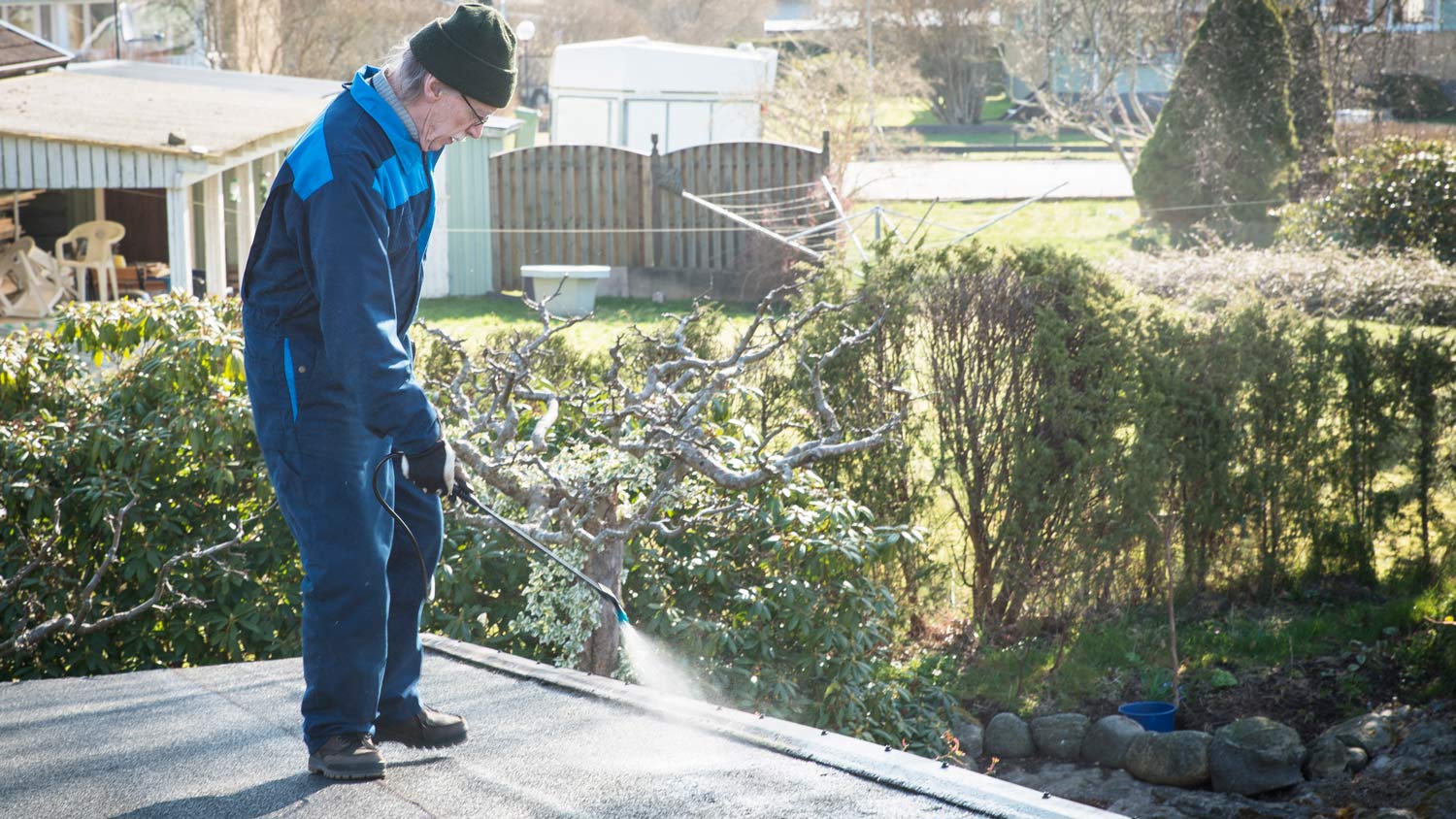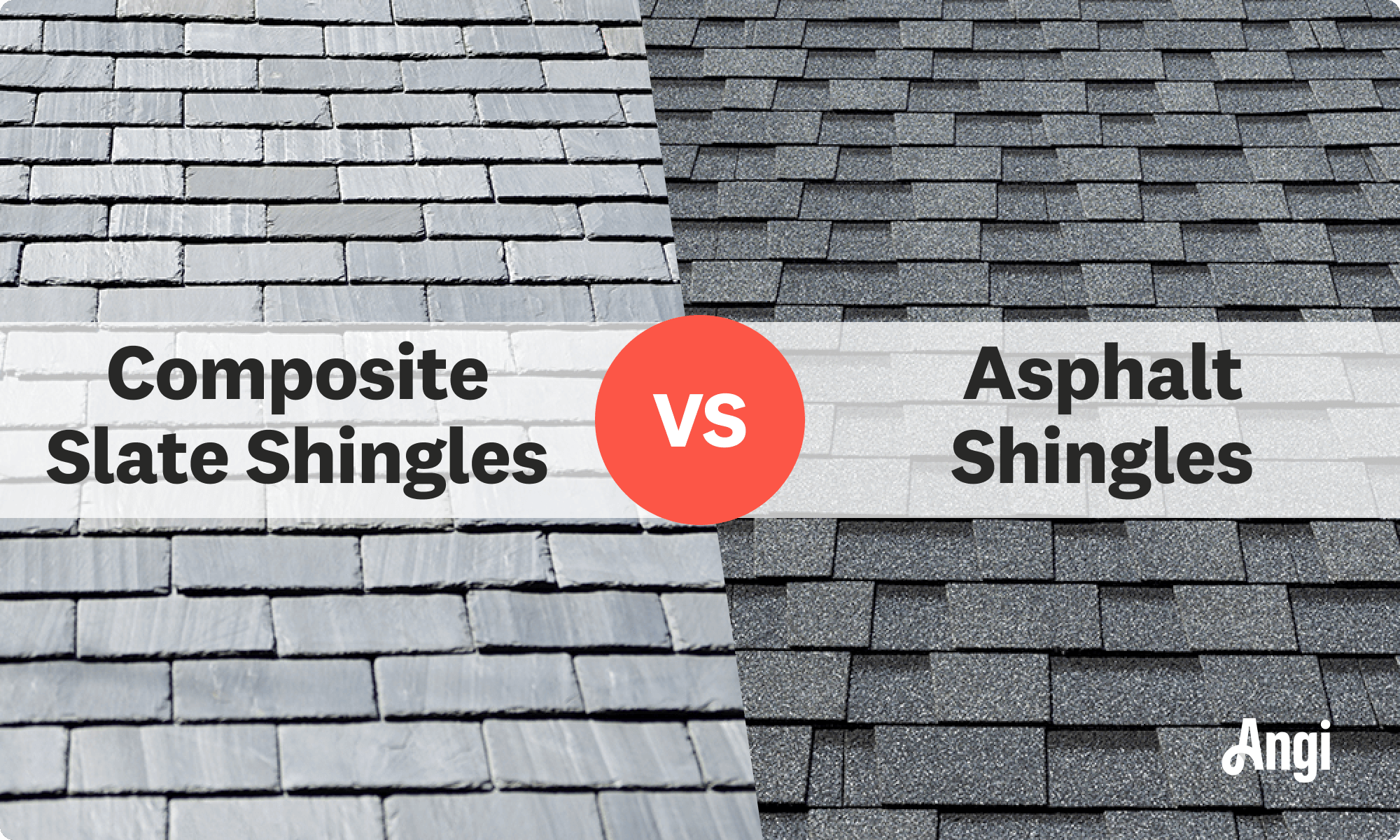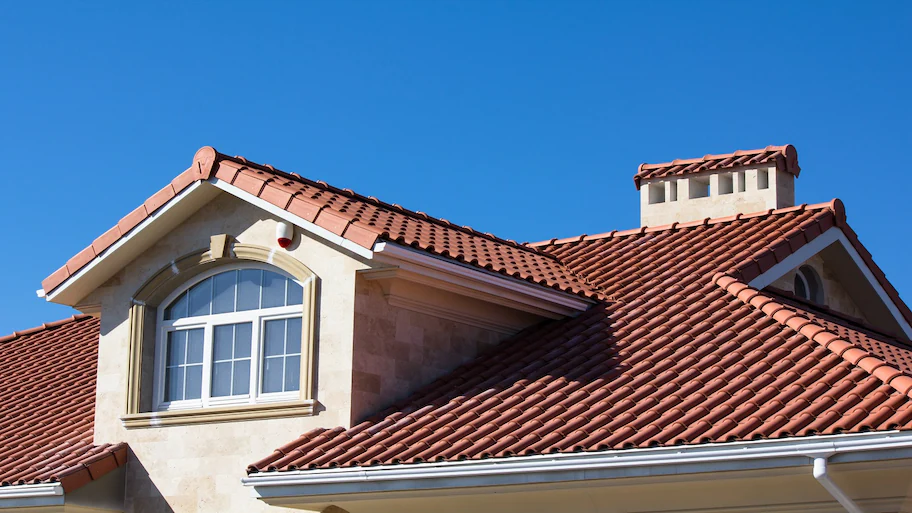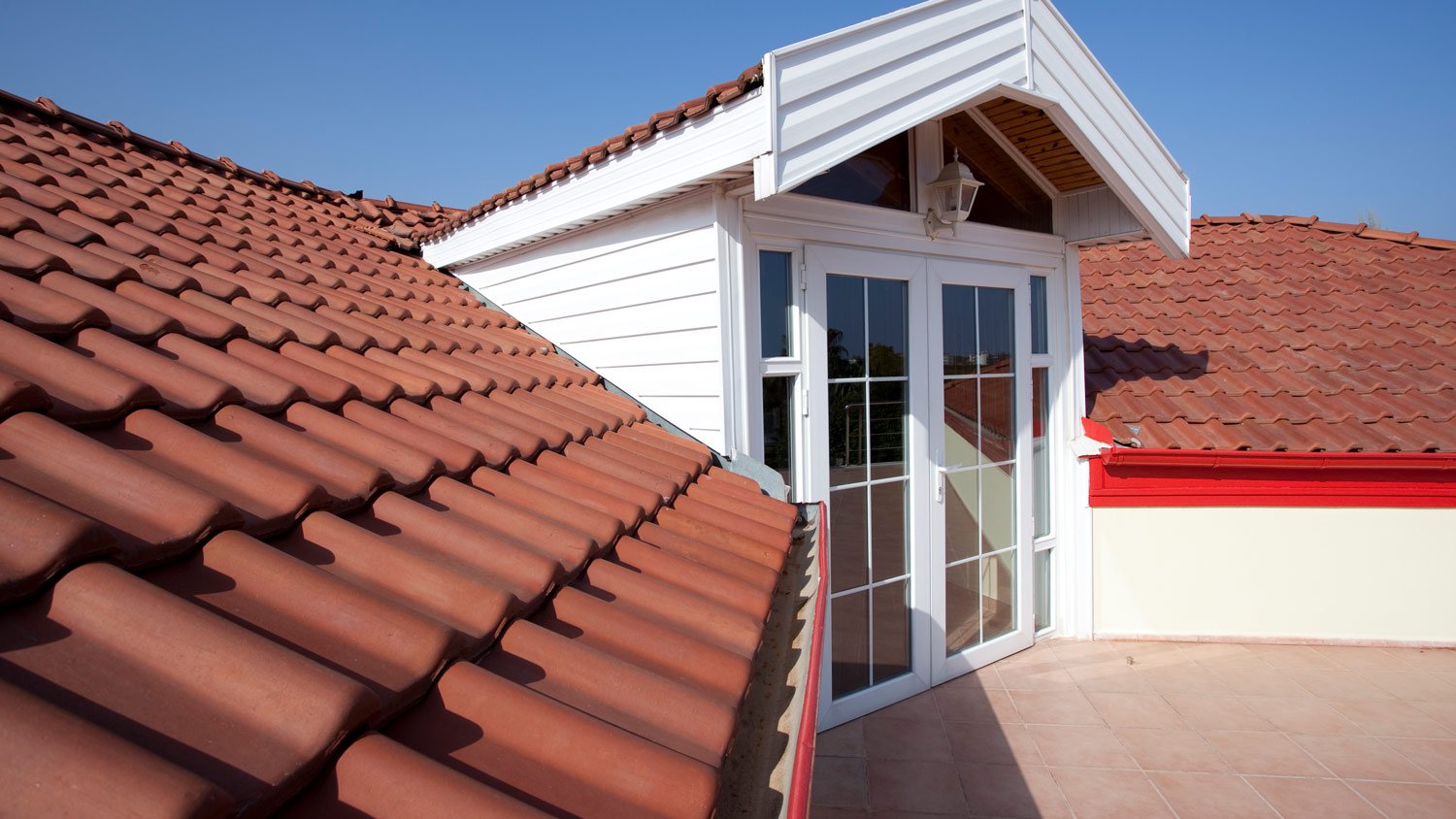
Spray foam roofing is a budget-friendly option to protect your home from energy loss and water damage. Learn how much spray foam roofing costs.
Most composite roof repairs cost between $780 and $2,080, with an average of $1,150. Main cost factors include repair type, roof size, materials, and labor rates.


The main drivers of composite roof repair costs are the type of repair, roof size, labor rates, and the quality of composite shingles used.
For composite roofs, expect to pay between $4 and $12 per square foot for repairs, depending on materials and project complexity.
Labor costs $50 to $150 per hour and ensures warranty compliance, safety, and durable results.
Premium materials cost $8 to $12 per square foot, while more affordable three-tab materials range from $4 to $7 per square foot.
This article was created using automation technology and thoroughly fact-checked and edited by an Angi Editor in accordance with our AI policy.
On average, composite roof repair costs range from $780 and $2,080, with most homeowners paying an average of $1,150. Minor repairs may cost as little as $400, while extensive damage can exceed $3,000. Expect to pay $4 to $12 per square foot for most composite roof repairs, depending on the scope and materials.
Composite roofs are popular for their durability and curb appeal, but even these roofs need repairs over time. Understanding the costs and what drives them will help you make smart decisions about maintaining your home’s first line of defense.
Several factors influence your composite roof repair cost. Let’s break down what goes into the overall price, so you know what to expect when budgeting for your project.
The type of roof repair needed is one of the most significant factors affecting cost. Common repairs for composite roofs include shingle replacement, leak patching, flashing repair, underlayment fixes, and structural repairs. Each has its own urgency and price, depending on the extent of damage and materials involved. Some repairs, like shingle replacement, are routine, while others, such as structural fixes, are less frequent but more expensive.
| Repair Type | Description | Average Cost |
|---|---|---|
| Shingle replacement | Replace cracked, curled, or missing shingles | $150–$1,000 |
| Leak repair | Locate and patch leaks, address water intrusion | $200–$1,500 |
| Flashing repair | Fix or replace metal flashing around edges | $200–$500 |
| Underlayment repair | Repair or replace protective underlayment layers | $300–$1,200 |
| Structural repairs | Fix decking rot, sagging, or framing issues | $500–$3,000 |
Replacing damaged or missing composite shingles is essential for maintaining your roof’s integrity. Composite shingles can be prone to cracking, curling, or granule loss, especially after severe weather or years of sun exposure. Most composite shingles need spot replacements every 10 to 15 years, though high-traffic or weather-exposed areas may require attention sooner. Expect to pay $1 to $4 per square foot, or $30 to $120 per bundle of shingles, for replacement.
Addressing leaks quickly prevents further damage to your roof and the home’s interior. Leaks in composite roofs often result from damaged shingles, worn flashing, or failed underlayment. Leaks can occur after storms, heavy winds, or as roofs age. Look for water stains, drips, or damp spots in your attic or ceiling. Leak detection and repair costs range from $200 to $1,500, depending on the extent and location of the damage.
Flashing is the metal material installed around roof edges, chimneys, and vents to prevent water from seeping in. Over time, flashing can corrode, become loose, or develop gaps, especially in areas with frequent freeze-thaw cycles. Flashing repairs are relatively common for composite roofs, especially near roof penetrations. Most homeowners address flashing issues every 10 to 15 years. Repair or replacement costs for flashing fall between $250 and $800.
Underlayment is a critical waterproof layer beneath your composite shingles, protecting your home from leaks. Signs of underlayment failure include persistent leaks, mold, or soft spots in your roof deck. These issues are less frequent than shingle problems but can be serious if left unchecked. Repairing or replacing sections of underlayment costs $300 to $1,200, depending on the area that needs attention.
Structural repairs, such as fixing rotten decking, sagging supports, or damaged rafters, are sometimes necessary if leaks have gone unaddressed. Composite roofs themselves are not more prone to structural issues, but water intrusion can cause wood rot or mold in any roofing system. Structural repairs are less common but more costly, often ranging from $500 to $3,000, depending on the severity.

The type of composite shingle installed on your roof also affects repair costs. Three-tab shingles are thinner and less expensive to repair, while architectural and premium shingles are thicker, offer better weather resistance, and cost more to fix. The profile, thickness, and manufacturer of the shingle all play a role in determining repair pricing.
| Composite Roof Type | Description | Average Cost per Sq. Ft. |
|---|---|---|
| 3-tab | Flat, basic composite shingle | $4–$7 |
| Architectural | Thicker, layered, dimensional look | $6–$10 |
| Premium | High-end, extra thick, specialty finishes | $8–$12 |
The brand of your composite shingles impacts repair costs due to proprietary materials and installation methods. Some brands require specific replacement parts or have strict warranty guidelines, which can drive up costs. Well-known brands might have higher material prices but could also offer better warranties or durability. When repairing, matching the original brand is usually best for appearance and performance.
The size of the repair area and overall roof square footage are major determinants of composite roof repair cost. Small repairs (under 100 square feet) are less expensive, while larger areas or multiple repair zones increase labor and materials needed.
| Roof Size (Sq. Ft.) | Description | Average Cost |
|---|---|---|
| Small (under 1,000) | Patch or isolated repair | $400–$900 |
| Medium (1,000–2,000) | Several areas or sections | $900–$1,800 |
| Large (2,000+) | Extensive repairs | $1,800–$3,000+ |
Material quality, color, and finish affect composite roof repair cost. Standard composite shingles are more affordable, while premium or specialty finishes cost more. Matching your existing shingles can also increase costs if your original style or color is discontinued.
| Standard composite | Basic, common colors | $4–$7 |
| Architectural | Thicker, textured, more durable | $6–$10 |
| Premium/specialty | Impact-resistant, custom colors | $8–$12 |
Manufacturer or installer warranties can impact your out-of-pocket composite roof repair cost. Some warranties cover specific repairs for a set period, such as shingle defects or installation errors. Check your documentation to see if your repair is eligible—otherwise, you’ll pay full price. Voided warranties, often from improper installation or DIY work, mean you’re responsible for all repair expenses.
Maintenance plans are available for composite roofs and can help reduce repair costs over time. A typical plan includes annual inspections, minor repairs, and debris removal. These plans may cost $200 to $600 per year, but can catch issues early and provide discounts on major repairs. Regular maintenance reduces the frequency and severity of future repairs.
Roofing professionals—including roofers and general contractors—handle composite roof repairs. Labor rates range from $50 to $150 per hour or are included in a per-project quote. Higher rates are common in cities or during peak seasons. Complexities such as steep pitch, tall roofs, or hard-to-reach areas can increase labor costs. Always confirm if labor is included in your estimate.
Your geographic location affects your composite roof repair cost. Urban areas with higher demand may have increased labor rates, while rural locations sometimes offer lower prices but less availability.
Climate also plays a role—regions with frequent storms or heavy snowfall may see higher repair costs.
Local permit fees can add $50 to $300, and repairs to detached garages or sheds may cost less than main house roof work.
Many composite roof repair projects involve extra services, such as gutter repair, skylight sealing, or ventilation upgrades. These add-ons can help improve roof performance, but will increase your total project cost. For example, gutter repairs cost $100 to $500, while skylight resealing ranges from $200 to $600. Always clarify what is included in your estimate to avoid surprises.
Deciding whether to repair or replace your composite roof depends on several factors. If your roof is relatively new, with isolated damage, repairs are usually the best choice. Consider replacement if your roof is over 20 years old, has widespread issues, or repairs approach the cost of a new roof.
A good rule of thumb is the 50% rule: If your repair costs exceed 50% of a full replacement (which often ranges from $8,000 to $18,000 for composite roofs), replacement is likely the better investment. Repairing extends your roof’s life and costs less upfront, but frequent repairs can add up. Replacement delivers long-term value and peace of mind, especially if your roof is nearing the end of its lifespan.
DIY composite roof repair may seem less expensive, but there are important factors to weigh. You’ll pay for materials ($4 to $12 per square foot), tools, and safety gear. While you avoid labor charges, improper repairs can void warranties or lead to bigger problems. Roofing work requires skill, comfort with heights, and knowledge of safety practices.
DIY repairs suit small patches or isolated shingle replacements, but larger jobs or structural fixes should be left to professionals. Time commitment and risk of injury are significant considerations. Hiring a pro costs more upfront but ensures proper repairs, safety, and warranty compliance.
Consider these cost-saving strategies to make your composite roof repair project more budget-friendly:
Schedule regular roof inspections to catch issues early.
Address minor repairs promptly to prevent escalation.
Compare quotes from multiple local roofing repair professionals.
Use matching materials to avoid full section replacements.
Maintain gutters and ventilation to reduce roof stress.
Consider a maintenance plan for long-term savings.
Home is the most important place on earth, which is why Angi has helped more than 150 million homeowners transform their houses into homes they adore. To help homeowners with their next project, Angi provides readers with the most accurate cost data and upholds strict editorial standards. We extensively research project costs to develop the pricing data you see, so you can make the best decisions for you and your home. We rely on reputable sources, including the U.S. Bureau of Labor Statistics, academic journals, market studies, and interviews with industry experts—all to ensure our prices reflect real-world projects.
Want to help us improve our cost data? Send us a recent project quote to [email protected]. Quotes and personal information will not be shared publicly.
From average costs to expert advice, get all the answers you need to get your job done.

Spray foam roofing is a budget-friendly option to protect your home from energy loss and water damage. Learn how much spray foam roofing costs.

A new roof improves curb appeal, increases home value and keeps your living space protected from the elements. Learn about average roof replacement costs to set your budget.

Discover the most significant factors regarding aluminum roofing cost to help you make informed decisions about your investment in one for your home.

If you’re upgrading your roof with stone-coated steel, you should be aware of the total project cost. Learn what will impact your final stone-coated steel roofing costs.

Painting a metal roof helps it look great and last for decades. Use this guide to learn how to paint a metal roof, whether you DIY the job or hire a pro.

Shingles that are losing their granules may not be protecting your roof. Learn why shingle granule loss happens and what it means for your roof.